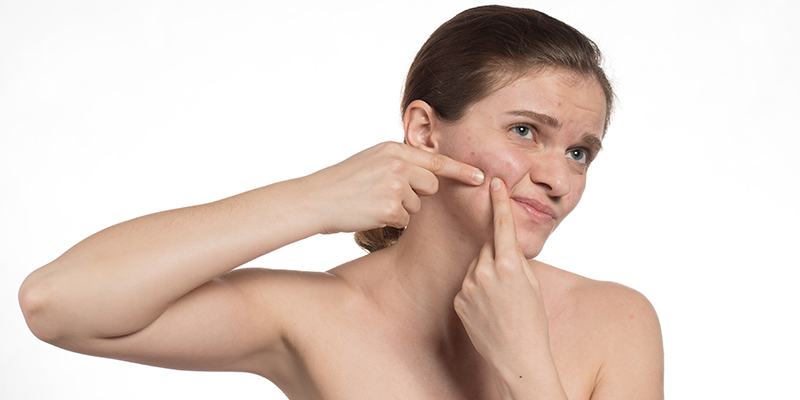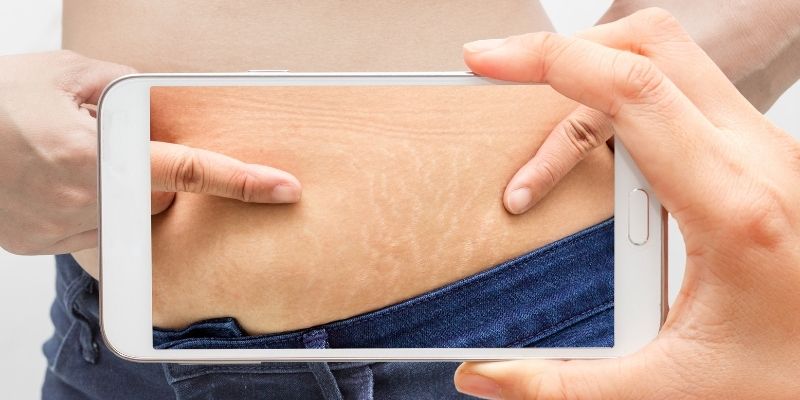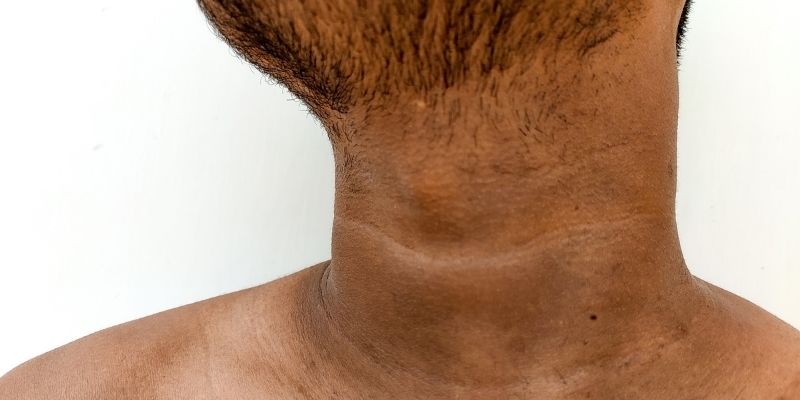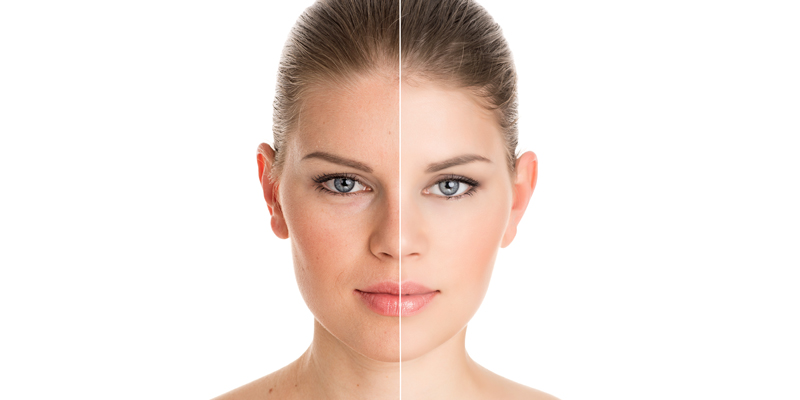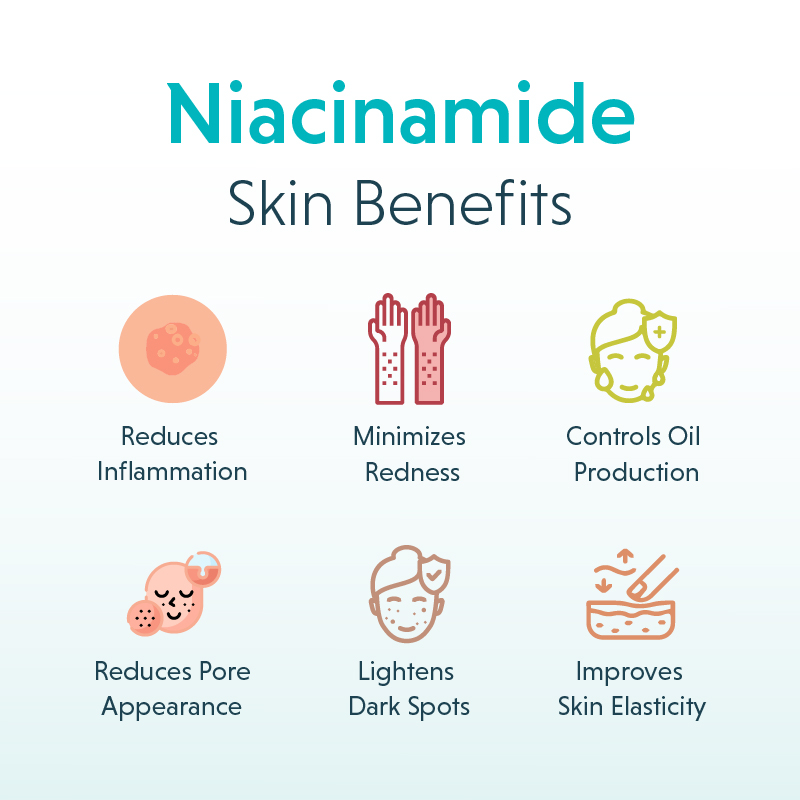In This Article
Homemade Face Masks Acne
Acne is one of the most common skin concerns and many people are looking for cost-effective and natural treatment options to help them manage it. Homemade face masks for acne are popular as they comprise natural, everyday ingredients known to soothe the skin.Let us learn more about the advantages and the types of homemade acne masks and the causes of acne so you know how to make the best face mask for acne at home.
In This Article
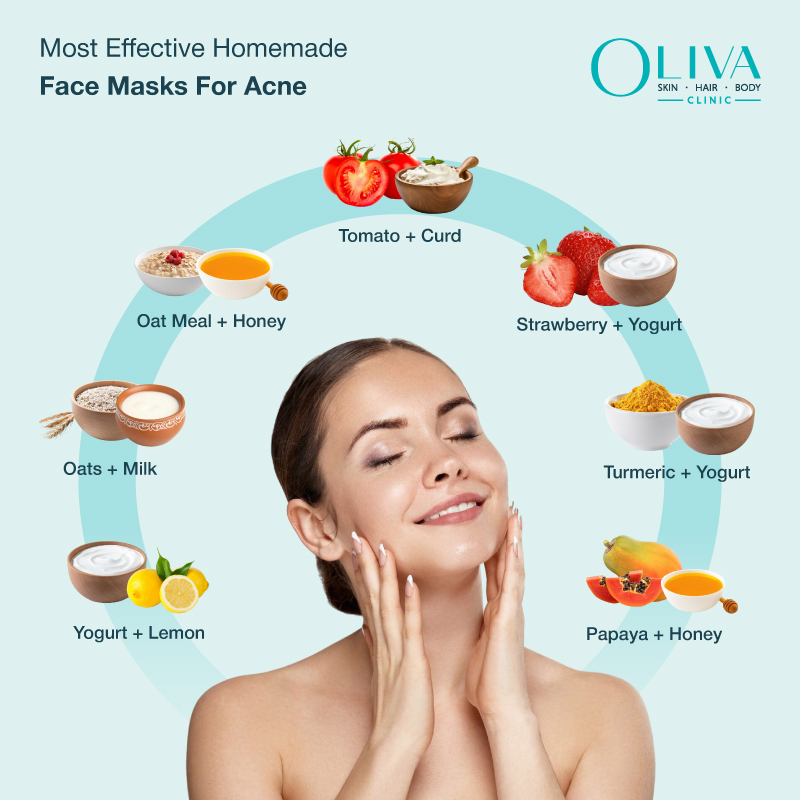
Understanding Acne
Acne is a complex skin condition that can take on different forms, each with distinct characteristics. Identifying the underlying cause of acne is crucial to managing it effectively [1]
Acne can appear as whiteheads, blackheads, cysts, nodules, pustules, and papules.
While genetics and hormonal fluctuations are the leading causes of acne, other factors like stress, poor diet and lifestyle, unsuitable skincare, certain medications, and environmental factors like pollution can worsen it.
Symptoms Of Acne?
The appearance of pimples varies based on the severity [2]
You will notice:
- Small red eruptions around the skin
- Blackheads
- Papules (small red bumps)
- Cysts
- Crusting of skin bumps
- Pustules (small red bumps containing white or yellow pus)
- Whiteheads
Benefits Of Homemade Face Masks For Acne
Homemade face masks for acne are popular due to the presence of natural ingredients with minimal side effects. Let us look their advantages:
- Natural Ingredients: Homemade masks are free of the harsh chemicals you will find in store-bought/over-the-counter products. The synthetic elements present in them can have adverse reactions on the skin. Meanwhile, natural ingredients are free from artificial additives and gentle on the skin.
- Cost-effective: Most ingredients used in homemade masks are affordable and easily available in the kitchen. They provide low-cost substitutions to store-bought goods.
- Customisable: Depending on your skin type and concerns, you can tailor homemade masks easily. Preparing a fresh homemade mask is easy as it saves time and is customised to your skin needs.
Why Homemade Face Packs Are Good For Acne
The presence of natural ingredients in homemade masks helps exfoliate the skin, and can give you even-toned skin.
- Skin Type And Concern: It is crucial to understand your skin type to select the right face mask. Here is a list of the best face masks for acne according to skin type and concern. Please remember that the results of these masks can vary for everyone and cause severe side effects. It is best to consult a dermatologist for your acne before you try these out.
- Oily Skin Homemade Face Mask For Acne: People with oily skin type experience frequent breakouts due to excessive sebum production. Here are a few homemade masks that can help:
- Bentonite Clay Face Pack : Bentonite clay helps unclog pores and reduce breakouts by absorbing oil and dirt from the skin. To make this face pack, you need 2 tablespoons(tbsp) of bentonite clay and water or apple cider vinegar. Mix the ingredients to form a smooth paste and apply. Let it sit for about 10 to 15 minutes before rinsing with lukewarm water. Pat your skin dry to finish.
- Charcoal Mask: Charcoal works with clay to reduce oiliness, draw out dirt, and detoxify the skin. Take 1 tbsp of activated charcoal powder and mix it with 1 tbsp bentonite clay. Mix it with 1 teaspoon(tsp) apple cider vinegar to form a smooth paste. Add water to the mix to achieve good consistency. Apply on the face and rinse off after 10 to 15 minutes. Pat skin dry with a gentle towel.
- Tea Tree Clay Mask:Tea tree oil helps reduce acne-causing bacteria due to its antifungal and antioxidant properties. Add 2 tbsps of bentonite clay to a bowl and keep adding water until a smooth thick paste forms. Clay helps absorb excess oil. Add 2 to 3 drops of tea tree essential oil and mix. Apply for 10 to 15 minutes before rinsing.
- Baking Soda Mask: Baking soda helps prevent acne by exfoliating the skin and reducing oiliness. 2 tbsps of baking soda in water will give you a thick paste. Leave this mask on your face for 10 to 15 minutes and let it work. Rinse off and gently pat your skin dry.
- Lemon and Yoghurt Face Mask: Yoghurt gives hydration and a natural glow while lemon balances oil production. Mix 1 tbsp lemon juice with yoghurt to make a paste. You can apply it on the face and let it sit for 10 to 15 minutes. Pat dry your skin gently after rinsing.
- Dry Skin Homemade Face Mask For Acne:Dry skin face masks work by restoring moisture. Dry skin can feel flaky as it is not hydrated enough. These masks make your skin less prone to breakout and irritation by soothing it. [4]
- Overnight Oat Milk Mask: Overnight Oat Milk mask provides long-lasting moisture by soothing and hydrating the skin. Soak ¼ cup oats in ¼ cup milk. Leave it overnight. Blend the mix the following day to make a smooth paste. Apply it to the face and leave it for 15 to 20 minutes. Rinse and pat dry.
- Oatmeal Facial: Oatmeal is ideal for sensitive, dry skin as it gently exfoliates and moisturises it. Mix 2 tbsps of ground oats with 1 tbsp honey. Add water to the mix to form a smooth paste. Apply it on the face and let it sit for 15 to 20 minutes. Once it dries, you can rinse with lukewarm water.
- Honey Mask: Great for dry, acne-prone skin, honey hydrates with its antibacterial properties. Take 2 tbsps of honey and apply a thin layer on the face. Let it sit and work on your skin for about 15 to 20 minutes. You can rinse and pat your skin dry after.
- Aloe Vera Mask: Aloe Vera promotes healing and controls inflammation by soothing and hydrating dry, irritated skin. Take about 2 tbsps of freshly extracted Aloe Vera gel. Use this to form a thin layer of the gel on your face. Let it work for about 20 minutes before rinsing. Gently pat your skin dry with a soft towel.
- Chocolate Face Mask: Chocolate face mask can rejuvenate the skin as it is packed with antioxidants. Introduce 2 tbsps of cocoa powder in a bowl. Add 1 tbsp of honey and 1 tbsp of yoghurt to it. Give it a good mix before applying. Leave it on the skin for approximately 20 minutes and then rinse off.
- For Combination Skin: Combination skin has oily and dry skin areas, with an oily T-Zone (forehead, nose and chin) and dry cheeks. These masks help balance both areas.
- Papaya Face Mask: Papaya balances skin tone and honey provides hydration. Mash about ½ ripe papaya and mix it in about 1 tbsp honey. Once you get a smooth paste, apply it to your face. Let it work for around 15 to 20 minutes. Rinse and gently pat dry.
- Tomato And Curd Face Mask: Curd soothes dry areas and tomato minimises oiliness, providing the right balance of treatment for combination skin. Blend one ripe tomato and mix about 2 tbsp of curd. Leave it for 15 to 20 minutes after applying. Rinse it off and dry the skin gently with a soft towel.
- Cucumber Facemask: Cucumber hydrates the skin, while yoghurt gently exfoliates and moisturises. Peel and blend half a cucumber until smooth. Add 1 tbsp of curd or plain yoghurt to the mix and apply the paste. Rinse after 15 to 20 minutes.
- Matcha Mask: Rich in antioxidants, matcha helps reduce inflammation and brighten the skin tone. Yoghurt with honey hydrates the skin. To make this mask, mix about 1 tsp of matcha powder with 1 tbsp of curd or plain yoghurt. Add 1 tsp of honey to it and give it a good mix until it forms a smooth paste. Apply and leave it on for about 20 minutes and then rinse.
- Strawberry Yoghurt Exfoliating Mask: Rich in salicylic acid, strawberries help exfoliate the skin and clear out clogged pores. Yoghurt, on the other hand, gently exfoliates. Mash two to three ripe strawberries and add it to a bowl. Take 1 tbsp plain yoghurt and mix it for a smooth paste. Apply it and let it work for not more than 10 to 15 minutes. Rinse and pat dry.
Homemade Face Mask For Acne-Prone Skin
- Turmeric Facial mask: Turmeric helps reduce bacteria and inflammation; Yoghurt hydrates and soothes the skin; Honey offers antibacterial properties for an effective home remedy. Take 1 tsp turmeric powder, 2 tbsp yoghurt, 1 tsp honey. Put it together in a bowl and give it a good mix until you achieve the consistency of a paste. Apply and let it stay for around 20 minutes before rinsing.
- Neem Face Pack: With anti-inflammatory and anti-bacterial properties, neem is a super ingredient to soothe the skin and reduce acne. Use 1 tbsp of neem powder and mix water or rose water in it for a smooth paste. Apply this mask and keep it for around 15 minutes. Rinse off and pat dry.
For Brightening And Even Skin Tone:
- Papaya Face Mask: Papaya has enzymes that brighten and exfoliate the skin, while honey helps in hydration. Mash a few pieces of papaya and mix it with about 1 tbsp honey until you make a smooth paste. Apply this mix on clean skin and leave it for approximately 20 minutes. Rinse off and gently pat dry.
- Green Tea Mask: Rich in antioxidants, green tea brightens the skin and also evens out skin tone. Take a green tea bag and steep it in hot water. Once it cools, mix the green tea with 2 tbsps of honey. Make a paste and apply the mix. Leave it for around 20 minutes and then rinse.
- Tomato And Curd Face Mask: Tomato is known to reduce dark spots and blemishes thanks to its antioxidant properties. Curd has lactic acid which helps in exfoliation for a smoother, even complexion. Blend a ripe tomato to make a puree. In it, mix 2 tbsps curd until smooth. Now, leave it on your face for about 15 minutes and then rinse.
Did You Know? Facts About Acne
- Consumption of oily foods does not cause acne. However, eating these foods aggravates existing acne.
- Stress does not directly cause acne but can make it worse.
- Acne can occur in teenagers and adults alike.
- A healthy lifestyle and a proper skincare routine can help better manage acne.
- Avoid popping pimples as it can lead to scarring.
Tips For Clear Skin
Consider the following tips for maintaining your skin health with homemade face masks. [5]
- For the mask to penetrate the skin, clean your face thoroughly to remove oil, impurities, or makeup.
- Use warm water as it makes it easier to remove any impurities by opening the pores.
- Use a toner and a gentle moisturiser after rinsing. This will help in restoring the skin’s pH balance and lock hydration.
- Regular use of homemade face masks is crucial to see progress in skin concerns, but consult a dermatologist to avoid any side effects.
- Include more fruits and vegetables in your daily diet. Also, increase the intake of water for clear and healthy skin.
- Practice stress-managing activities like meditation or yoga.
- See a dermatologist if you have persistent and severe acne.
Homemade masks are effective in soothing the skin and can make acne management easier. However, exercise caution as they can have adverse effects on the skin. We advise you to meet with a dermatologist before using any homemade ingredients on your skin. It is also critical to identify the root cause of acne and seek professional treatment.
NOTE:
homemade acne solutions may not give the same results for everyone, so you must exercise caution while using them. In case of severe, persistent acne, it is best to consult a dermatologist.
Frequently Asked Questions
Due to their antibacterial properties, the Tea Tree Clay Mask and Neem Face pack are great for treating acne. However, we always recommend that you check with a dermatologist before using these face masks as the results may vary for everyone.
The cause of acne is often internal including genetics and hormonal changes. Identifying and addressing the root cause helps in minimising it. If it persists, we recommend that you consult a dermatologist. Further, maintaining a proper skincare routine with suitable products and a healthy lifestyle can also help reduce acne.
Yes, it helps with inflammation and bacteria, but it may not give the same results for everyone. So use it with caution.
Yes, aloe vera fights inflammation and soothes the skin, but it may not help directly reduce acne.
Neem, turmeric, tea tree oil, and bentonite clay can help with inflammation.
While it is ideal to use them immediately, you can refrigerate them for a while. But their life in the refrigerator depends on the ingredients.
To see a visible improvement, it may take a few weeks of consistent use. However, it varies based on the underlying cause of acne and the unique skin type of every individual.
No, it is critical to address the root cause of acne to see results, but homemade face masks can help soothe the skin. It is always best to consult a dermatologist for proper and safe treatments for acne.




